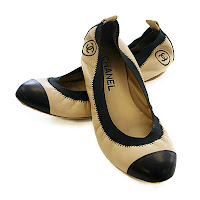 |
| Photo courtesy Bing Images |
Christina, my wonderful and talented stepdaughter, (sidebar: we are on a mission to recast that word in the positive light that reflects our relationship, and that of many other stepmother-stepdaughter relationships) has written recently about the importance of establishing a family message that can be presented consistently to schools as you journey through the elementary admissions process.
Part of this task is to determine whether you and your spouse are really looking for the same thing in the education of your children. It is remarkably easy to think you see things similarly but when you are up against it, perhaps even at an admissions open house, you discover that there are some significant differences in your perceptions or expectations.
It is generally the case that people are comfortable with what they understand. We have all responded to our own upbringing, either by valuing it and wishing to recreate it for our children, or by questioning our own experience and seeking something different. It is very important to have this conversation at home well before you begin to build your family brand and participate in parent interviews.
It is likely that one of you has taken the lead in gathering the necessary information that will determine what schools you visit and apply to. There is a lot of learning that takes place along the way. One example is that you will discover that the best competitive academic schools have come to realize that ‘hands-on’ learning is appropriate and preferred in many instances at the elementary level. Looking for the classroom where children sit quietly in rows and keep their eyes on the teacher in the front of the room who talks may seem familiar, but it does not mean that the best teaching is going on in that school. Be sure that both you and your spouse have the benefit of this new level of understanding that you have found. There are articles on the NAIS (National Association of Independent Schools) website that can help with this need to keep current with what is accepted as “Good Practice” in elementary education.
The importance of you and your spouse/partner being on the same page when it comes to interviews at schools cannot be underestimated. Admissions directors can sense any rift, or even minor difference, between you very easily, and that will create concern immediately. So do your homework – both of you, and have the necessary conversations, even if you don’t think you need to. What you discover will either cement your family message or help you determine the issues that need to be resolved before you can move forward as a united front.
In the end, isn’t this just part of what being a family is? I think so!
Anne Simon is the co-author of Beyond The Brochure: An Insider’s Guide To Private Elementary Schools In Los Angeles.








